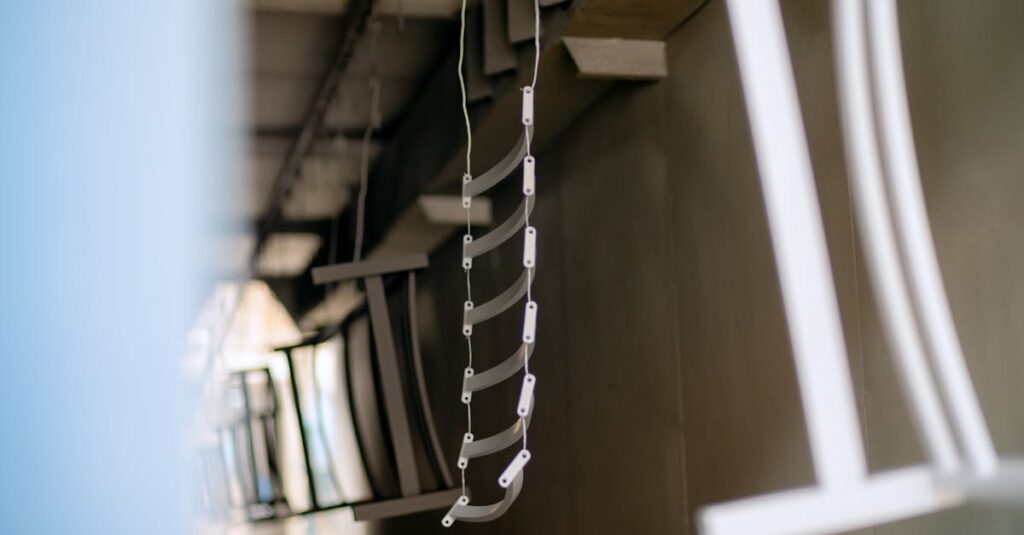In today’s fast-paced world, the demand for innovative solutions drives industries to explore advanced technologies. Hi-tech fasteners are at the forefront of this evolution, offering unparalleled strength and reliability for various applications. These cutting-edge fastening solutions are engineered to meet the rigorous standards of sectors like aerospace, automotive, and construction.
As manufacturers seek to enhance performance and efficiency, hi-tech fasteners provide the perfect blend of durability and precision. From lightweight materials to smart fastening systems, these innovations not only streamline assembly processes but also contribute to overall product longevity. Understanding the significance of hi-tech fasteners is essential for anyone looking to stay ahead in a competitive market.
Hi Tech Fasteners
Hi-tech fasteners represent a significant evolution in fastening technology, tailored to meet the rigorous demands of modern industries. These fasteners utilize materials and design techniques that enhance strength, durability, and precision, making them integral in sectors like aerospace, automotive, and construction.
Key Features
- High Strength: Hi-tech fasteners exhibit tensile strengths exceeding standard materials, facilitating the secure assembly of critical components.
- Corrosion Resistance: Advanced coatings and materials protect against environmental factors, ensuring longevity in challenging conditions.
- Lightweight Design: Many hi-tech fasteners leverage innovative materials, such as titanium or carbon fiber, reducing overall weight without compromising performance.
- Precision Engineering: Enhanced manufacturing techniques allow for tight tolerances, ensuring a perfect fit in applications where accuracy is vital.
Applications
- Aerospace: Used in aircraft assemblies, where failure risk must be minimized.
- Automotive: Integral in lightweight vehicle designs, contributing to fuel efficiency.
- Construction: Ensuring structural integrity in high-rise buildings and bridges.
- Improved Efficiency: Streamlined assembly processes benefit from the ease of installation.
- Enhanced Performance: Superior materials lead to a longer lifespan and reduced maintenance needs.
- Market Competitiveness: Adopting hi-tech fasteners aligns with industry trends, promoting innovation and sustainability in product development.
Types of Hi Tech Fasteners
Hi-tech fasteners come in various types, tailored to meet specific industry needs. Understanding these types helps optimize performance and application.
Material Options
- Titanium: Titanium offers high strength-to-weight ratios. It resists corrosion, making it ideal for aerospace applications.
- Carbon Fiber: Carbon fiber provides lightweight solutions with high tensile strength. It’s commonly used in sports and automotive industries.
- Stainless Steel: Stainless steel combines strength and corrosion resistance. It’s widely used in construction and maritime applications.
- Aluminum: Aluminum fasteners are lightweight and resistant to corrosion. They’re suitable for automotive and aerospace sectors requiring reduced weight.
- Plastic Composites: Plastic composites deliver lightweight, non-corrosive solutions. They find applications in electronics and consumer goods.
- Self-Locking Fasteners: Self-locking designs prevent loosening under vibration. These are essential in aerospace and automotive settings.
- Threaded Fasteners: Threaded fasteners allow for easy assembly and disassembly. They cater to various applications, from construction to machinery.
- Rivets: Rivets provide permanent fastening solutions, ensuring strong joints in structural applications like bridges and buildings.
- Snap Fasteners: Snap fasteners offer quick assembly and disassembly. They’re used in various consumer products and apparel.
- Modular Fasteners: Modular designs allow for customizable configurations. These are ideal for applications needing adaptability in assembly.
Applications of Hi Tech Fasteners
Hi-tech fasteners play a crucial role in enhancing performance and safety across various industries. Their innovative designs and materials cater to specific application needs in the aerospace, automotive, and consumer electronics sectors.
Aerospace Industry
Aerospace relies heavily on hi-tech fasteners for critical applications where safety and reliability are paramount. Fasteners made from titanium and aluminum offer high strength-to-weight ratios, essential for lightweight aircraft design. Self-locking fasteners ensure that components remain securely attached, even under extreme conditions. The precision engineering of these fasteners decreases the risk of failure, improving overall aircraft performance and operational efficiency.
Automotive Industry
The automotive sector benefits from hi-tech fasteners due to the increasing emphasis on fuel efficiency and structural integrity. Components often utilize stainless steel and high-strength plastic composites for their durability and resistance to corrosion. Fasteners enhance vehicle assembly processes, reducing weight while maintaining strength. Advanced fastening solutions, such as threaded fasteners and modular fasteners, facilitate rapid production and easy maintenance, addressing the fast-paced demands of the automotive market.
Consumer Electronics
Consumer electronics manufacturers employ hi-tech fasteners to ensure product durability and ease of assembly. Lightweight materials like carbon fiber provide the strength needed for portable devices while minimizing weight. Snap fasteners and precision-engineered threaded fasteners allow for quick assembly and disassembly, catering to repair and upgrade needs. These fasteners enhance product longevity and performance, aligning with consumer expectations for reliable and efficient devices.
Advantages of Using Hi Tech Fasteners
Hi-tech fasteners offer numerous advantages, including superior strength and durability, corrosion resistance, and lightweight design. These benefits enhance performance in demanding applications across various industries.
Strength and Durability
Hi-tech fasteners exhibit exceptional strength, owing to advanced materials such as titanium and high-strength steel. Their design often includes features like self-locking mechanisms, ensuring secure connections under extreme loads. The durability of these fasteners withstands the rigors of harsh environments, enhancing the longevity of assembled products. In sectors like aerospace and automotive, the ability to maintain integrity during high-stress conditions proves vital for safety and performance.
Corrosion Resistance
Hi-tech fasteners resist corrosion effectively, ensuring reliability in environments exposed to moisture, chemicals, and temperature fluctuations. Materials like stainless steel and aluminum offer inherent corrosion-resistant properties, extending the lifespan of components. This resistance is crucial in sectors such as construction and marine applications, where structural integrity is essential. By utilizing these fasteners, industries can minimize maintenance costs and enhance overall system reliability, contributing to safer and more efficient operations.
Future Trends in Hi Tech Fasteners
Emerging trends in hi-tech fasteners focus on automation, sustainability, and advanced materials. Automation technologies streamline the manufacturing processes, ensuring higher precision and lower production costs. Industries increasingly rely on robotics for assembly, reducing human error and improving efficiency.
Sustainability drives the development of eco-friendly materials. Manufacturers explore biodegradable composites and recycled materials to minimize environmental impact. Emerging regulations encourage the use of materials that reduce carbon footprints while maintaining performance standards.
Advanced materials continue to evolve, enhancing the strength-to-weight ratios of fasteners. Innovations in nanotechnology lead to coatings that improve corrosion resistance and thermal stability. For example, nanostructured coatings offer exceptional protection against wear, making fasteners suitable for extreme environments.
Smart technology integration into hi-tech fasteners grows increasingly popular. Incorporating sensors into fasteners enables real-time monitoring of connection integrity. This trend enhances safety and reliability, especially in high-stakes industries such as aerospace and automotive.
Additive manufacturing, or 3D printing, presents unique opportunities for customized fastener designs. This technology allows for intricate geometries that traditional manufacturing methods cannot achieve. Custom-designed fasteners optimize performance characteristics to meet specific application requirements.
Collaboration across industries accelerates innovation in fastening technologies. Partnerships between material scientists and engineers foster the development of next-gen fasteners tailored for emerging applications. This collaborative approach drives advancements in sectors such as renewable energy and electric vehicles.
These trends highlight the dynamic landscape of hi-tech fasteners, where innovation plays a critical role in meeting the demands of various industries.
Hi-tech fasteners are revolutionizing industries by providing unmatched strength and reliability. Their advanced materials and innovative designs not only enhance performance but also contribute to safety and efficiency. As sectors like aerospace and automotive continue to evolve, these fasteners play a crucial role in meeting modern demands.
The future of fastening technology looks bright with trends in automation and sustainability. Embracing these advancements will be vital for companies aiming to stay competitive. By integrating hi-tech fasteners into their processes, businesses can ensure they’re not just keeping pace but leading the way in innovation and product longevity.



